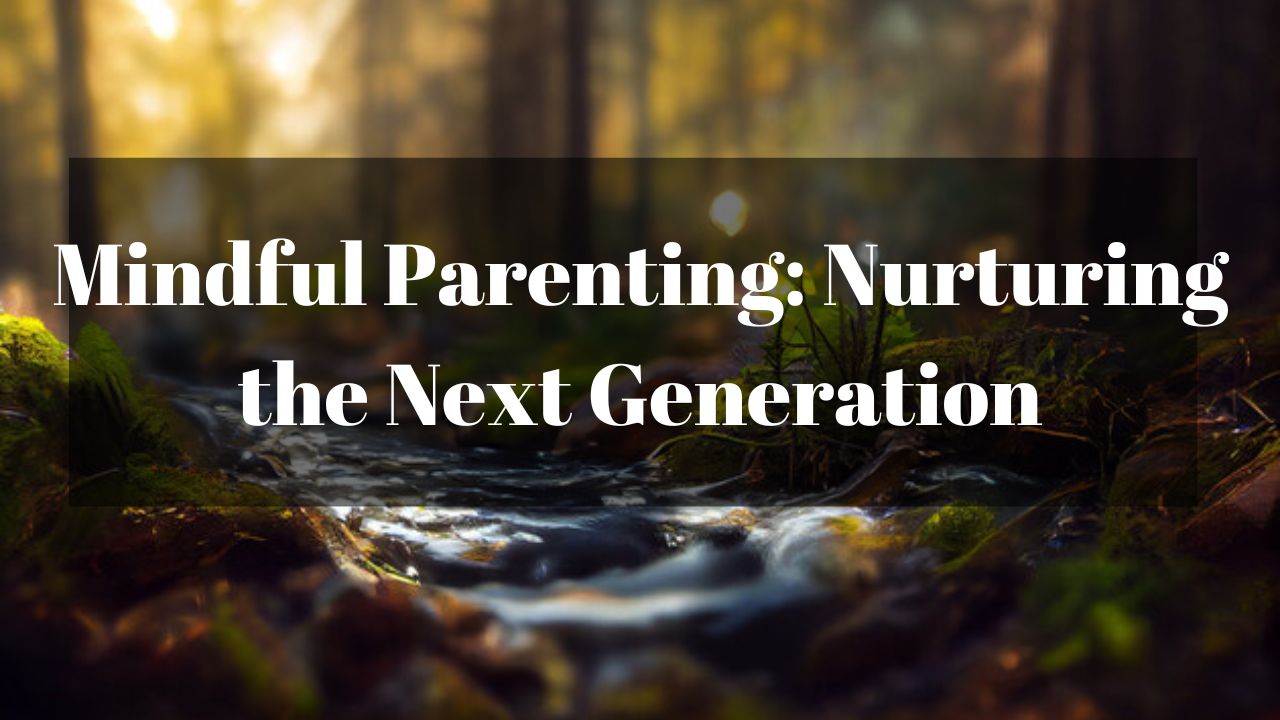Mindful Parenting: Nurturing the Next Generation
In the fast-paced world we live in, parenting has become a dynamic and challenging journey. Amidst the chaos, the concept of mindful parenting has emerged as a guiding philosophy, emphasizing the importance of being present, compassionate, and conscious in the parenting journey. In this article, we will delve into the principles of mindful parenting and explore how cultivating mindfulness can positively impact the development and well-being of the next generation.
Understanding Mindful Parenting:
Mindful parenting is rooted in the practice of mindfulness, which involves being fully present in the current moment without judgment. Applied to parenting, it means cultivating an awareness of one’s thoughts and emotions while engaging with children. This approach encourages parents to respond to situations with patience, empathy, and a non-reactive mindset.
Being Present in the Moment:
The cornerstone of mindful parenting is the art of being present. In a world filled with distractions, taking the time to truly engage with your child fosters a sense of connection and security. Put away electronic devices, create moments of undivided attention, and actively listen to your child’s thoughts and feelings. These small acts contribute to a stronger parent-child bond.
Cultivating Emotional Awareness:
Mindful parenting involves acknowledging and understanding your own emotions, as well as being attuned to your child’s feelings. Recognizing and accepting a wide range of emotions creates an environment where children feel safe expressing themselves. This emotional awareness sets the stage for open communication and helps children develop their own emotional intelligence.
Practicing Non-Judgmental Acceptance:
Mindful parenting encourages a non-judgmental approach, both towards oneself and one’s children. It involves letting go of unrealistic expectations and embracing the uniqueness of each child. By accepting both the strengths and challenges of parenting, individuals can foster an atmosphere of love and understanding within the family.
Effective Communication:
Mindful communication is an essential aspect of mindful parenting. It involves expressing thoughts and emotions with clarity and empathy. Listening actively, avoiding unnecessary criticism, and choosing words mindfully contribute to healthy parent-child relationships. Effective communication builds trust and encourages children to share their experiences and concerns openly.
Creating Mindful Rituals:
Establishing mindful rituals within the family routine can be transformative. Whether it’s a morning gratitude practice, shared meals without distractions, or bedtime storytelling, these rituals provide opportunities for connection and reflection. Consistent mindful rituals contribute to a sense of stability and predictability in a child’s life.
Setting Boundaries with Compassion:
Mindful parenting doesn’t mean relinquishing the role of an authority figure. It involves setting boundaries with compassion and explaining the reasons behind rules. This approach helps children understand the consequences of their actions, fostering a sense of responsibility and self-discipline.
Modeling Mindfulness:
Children learn by observing, and parents serve as primary role models. By practicing mindfulness themselves, parents can instill the value of being present and compassionate in their children. Modeling mindfulness can be as simple as taking deep breaths during stressful moments or demonstrating gratitude for the little things in life.
Encouraging Independence and Resilience:
Mindful parenting supports the development of independence and resilience in children. Allowing them to make age-appropriate choices, encouraging problem-solving, and letting them learn from their mistakes fosters a sense of autonomy and resilience. These qualities are essential for navigating life’s challenges.
Balancing Self-Care:
Mindful parenting recognizes the importance of self-care for parents. Balancing personal well-being with parenting responsibilities is crucial. Taking time for self-reflection, pursuing personal interests, and seeking support when needed contribute to a parent’s overall emotional resilience and, by extension, the well-being of the entire family.
Conclusion:
Mindful parenting is a transformative approach that goes beyond the traditional notions of raising children. It is about creating a nurturing environment where both parents and children can thrive emotionally, mentally, and spiritually. By incorporating mindfulness into parenting practices, individuals can cultivate deeper connections with their children, foster emotional intelligence, and contribute to the development of a resilient and compassionate next generation. Mindful parenting is not a destination but a continuous journey of self-discovery and growth, enriching the lives of both parents and their children.











